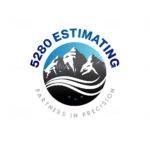What To Look For In A professional Drywall Estimator
When it comes to construction projects, precision and expertise are paramount. One of the key roles that contribute to the success of a project is that of the drywall and steel stud estimator. This professional drywall estimator is responsible for calculating the materials, labor, and costs involved in the installation of drywall and steel studs, ensuring that projects are completed on time and within budget. But how do you find the right fit for this crucial position? Here’s a detailed guide on what to look for when finding the best estimating service for drywall and framing.
1. Relevant Experience
Industry Knowledge: Look for candidates with substantial experience in the construction industry, specifically with drywall and steel stud projects. This ensures your professional drywall estimators are familiar with the materials, processes, and potential challenges specific to these tasks.
Project Portfolio: Ask for a portfolio of past projects. This can give you insight into the scope and scale of the projects they’ve worked on, as well as the complexity of the estimations they have handled.
2) Technical Skills
Proficiency with Estimation Software: Finding the best estimating services for drywall and framing heavily relies on software tools. Ensure the candidate is proficient with industry-standard software such as The Edge, PlanSwift, Bluebeam, or On-Screen Takeoff. Familiarity with BIM (Building Information Modeling) software is also a plus.
Mathematical and Analytical Skills: The role requires precise calculations and the ability to analyze data to provide accurate estimates. Strong mathematical skills are a must for professional drywall estimators.
Blueprint Reading: The ability to accurately read and interpret blueprints and construction plans is crucial. This skill ensures that the estimator can identify the materials and labor needed for the project accurately.
3) Attention to Detail
Thoroughness: A professional drywall estimator must be meticulous. Small errors in estimation can lead to significant cost overruns or project delays. Look for someone who demonstrates a high level of attention to detail in their past work.
Documentation Skills: Accurate and thorough documentation of estimates and assumptions is essential. This includes clear and comprehensive cost breakdowns and explanations of the methods used to arrive at the estimates.
4) Communication Skills
Clear Communication: An estimator must communicate effectively with project managers, contractors, and clients. This includes explaining estimates, discussing potential changes, and negotiating costs.
Collaborative Approach: Construction projects are collaborative efforts. The ability to work well within a team, including listening to and incorporating input from others, is crucial.
5) Understanding of Local Building Codes and Regulations
Regulatory Knowledge: Each region has its own building codes and regulations. Ensure the candidate has a thorough understanding of the local codes and how they impact material and labor estimates.
Compliance: The estimator should be able to ensure that all estimates comply with relevant building codes and safety regulations, which helps avoid legal issues and ensures the project’s smooth progression.
6) Problem-Solving Abilities
Adaptability: Construction projects often face unexpected challenges. A good estimator can adapt to changes and find solutions to unforeseen issues without compromising the project’s budget or timeline.
Innovative Thinking: Look for someone who can think outside the box to optimize costs and efficiency without sacrificing quality.
7) Professionalism and Reliability
Dependability: The right estimator should be reliable, consistently meeting deadlines and producing high-quality work.
Ethical Standards: High ethical standards and integrity are non-negotiable. The estimator should be honest about costs and transparent in their methods.
8) Continuous Learning
Staying Updated: The construction industry is always evolving, with new materials, methods, and technologies emerging regularly. A top-notch estimator will stay updated on industry trends and continuously seek to improve their skills.
Professional Development: Look for a commitment to ongoing education, such as attending industry conferences, taking relevant courses, and pursuing certifications.
9) References and Reviews
Client Feedback: Ask for references from previous clients or employers. Positive feedback from past clients can provide reassurance about the estimator’s capabilities and reliability.
Online Reviews: If available, check online reviews or testimonials. This can give you additional insights into their reputation and performance in the industry.
Conclusion
Finding the right professional drywall and steel stud estimator involves a comprehensive evaluation of their experience, skills, attention to detail, communication abilities, regulatory knowledge, problem-solving skills, professionalism, commitment to learning, and reputation. By carefully considering these factors, you can ensure that you select a professional drywall estimator who will contribute to the success of your construction projects, delivering accurate and reliable estimates that keep your projects on track and within budget.
Investing time in finding the best estimating services for drywall and framing not only helps in avoiding costly mistakes but also sets the foundation for a smooth and successful project execution. Whether you are a contractor, a project manager, or a construction company owner, following these guidelines will help you identify a top-tier professional drywall estimator who meets your specific needs and expectations.


